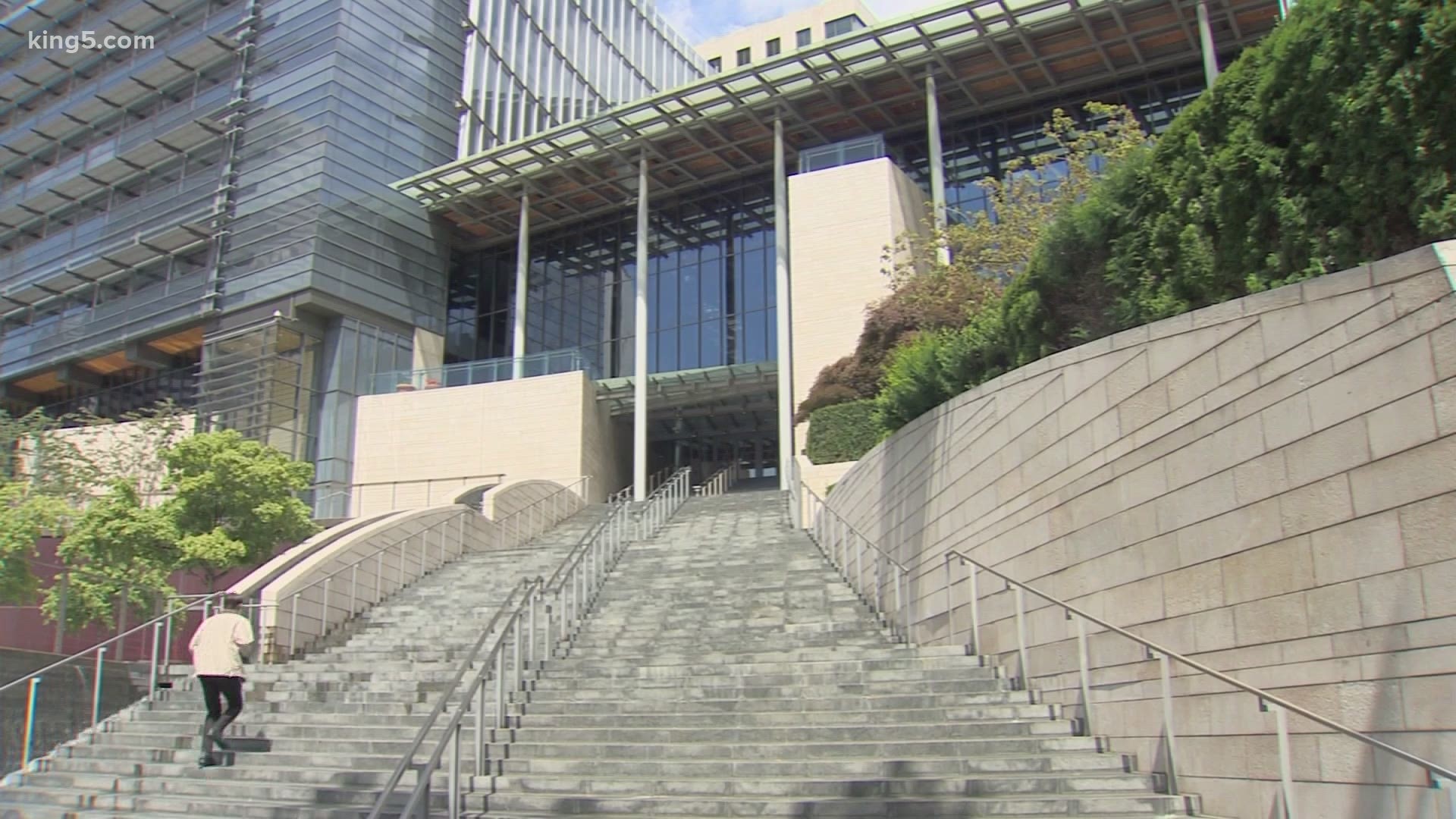SEATTLE — Did the Seattle City Council intentionally try to make a major change in misdemeanor crime statutes, in the middle of a budget process? A change was suggested in the midst of a budget hearing Wednesday that some critics think could lead to repeat offenders on the streets.
Seattle City Council member Lisa Herbold made her case Wednesday for altering the city's criminal code, as it deals with crimes involving people with substance or mental health issues.
As it reads, "this legislation could decrease the number of defendants potentially sentenced to jail and consequently, the City's usage of the King County jail. The term of the interlocal agreement governing the City's usage of the jail runs through 2030, but if this legislation can significantly decrease the City's bed use, it could inform long-term renegotiation of the jail contract."
Herbold said that people were "jumping to extreme conclusions" about the impact of such a change, which did not immediately appear to have a budget impact.
Council President Lorena Gonzalez also questioned the timing of the proposal, suggesting it would be better to discuss the idea after Thanksgiving after the budget cycle.
Gordon Hill, who is the deputy director of the King County Department of Public Defense, helped to craft the potential legislation, and backs the effort.
"It allows a judge to dismiss a criminal charge where the judge finds that the conduct, while it may technically constitute a violation of the law, isn't the kind of conduct that the law was intended to condemn, either because the crime was small in impact or there were some other circumstances that meant it was not the kind of culpability at which the criminal law is in," explained Hill. "This would allow the judge to take into consideration, again, either someone's behavioral health issues or that they've committed a crime, for the intent of meeting their basic needs. It's not a an absolute get out of jail free card, it's a defense that must be proved to a jury or persuaded to a judge."
Yet, critics were quick to pounce, suggesting that the legislation would lead to repeat offenders on the streets.
"My take is this was probably the most significant change of the criminal code in Seattle that I've ever seen. It does a number of things and provides defenses for almost every crime in Seattle. I think it's very concerning. And the fact that it was buried in a budget bill makes it even that much more concerning, because that would indicate, at least to me, there was an attempt to deceive person from actually seeing this, given the significant consequences of this bill," said former Seattle Municipal Court Presiding Judge Ed McKenna.
"If the case happens to go to a to a jury trial, the defendant would be able to say that I committed the crime because I was homeless or suffer from a substance use disorder or mental health issues, and I stole the item because I needed to pay my rent," continued McKenna. "That would be an affirmative defense. A judge would then be required to provide instructions to the jury that they would be obligated to dismiss the case. In other words, find the defendant not guilty. Should the defendant prove their defense by a preponderance of the evidence?"
KING 5 News Law Enforcement Analyst, and former Seattle Police Chief Carmen Best said, she agreed with the need for criminal reform, but also questioned the timing of it all.
"The fact that it's being discussed is probably a good thing. I do believe, though that the proper venue and format to have those discussions, as with the community, being involved into the criminal justice arena, and not through the budget process, but the relative importance of the discussion is there, we do need to look at what we're doing about these particular instances where people commit misdemeanor crime," said Best.
The Downtown Seattle Association (DSA), in conjunction with multiple neighborhood groups, railed on Herbold's proposal in a joint statement.
"This is deeply concerning for all who care about safe and welcoming neighborhoods and the very future of Seattle. And it does nothing to help Seattle’s struggling small businesses recover from the most severe recession in a generation," said the DSA statement in part. "Nearly 200 small businesses have already permanently shuttered — many due to the economic impacts of COVID-19 and others in response to repeated crime, theft and vandalism impacting their businesses."
There is no formal legislation yet and it certainly seems like this now may get tabled until after Thanksgiving.

